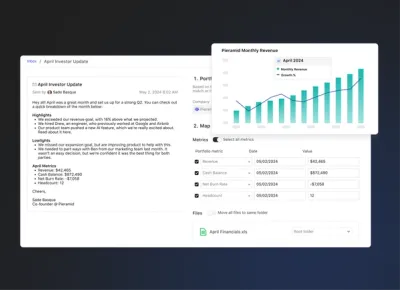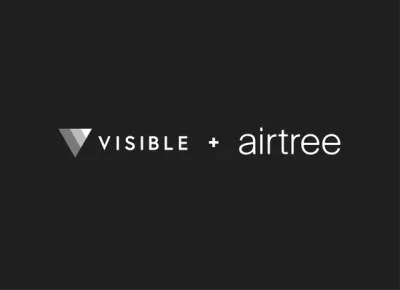
Startup Mentoring: The Benefits of a Mentor and How to Find One

Being a startup founder is difficult. For many founders, it is their first time having full responsibility to fund their business, hire a team, build a product, and scale all aspects of their business.
As Seth Godin puts it, “There are things you’re going to do just once. Get your tonsils out. Pick a caterer for your wedding. Raise money from a venture capitalist. Apply to college…When you have to walk into one of these events, it pays to hire a local guide. Someone who knows as much as the other folks do, but who works for you instead.”
Learn more about how founders can tackle their challenges and asymmetric experiences by finding a startup mentor below:
What is a startup mentor?
A startup mentor is someone who can offer a startup founder (or employee) mentorship, advice, and support by sharing their own experiences and knowledge.
For early-stage founders, a mentor can be particularly useful when it comes to understanding the different roles and responsibilities that come with the role of founder.
Related resource: Should Your Startup Have Mentors? Key Benefits and Considerati
Startup mentor vs. advisor
Startup advisors are typically a more formal agreement than a mentor and are used to fill strategic gaps for a business.
As put by the team at Mentor Cruise, “Startup advisors are chosen and utilized on a varying range of topics. The most common startup advisors are professors, founders, and serial founders themselves, with deep expertise in a company’s niche.”
What Does a Startup Mentor Do?
As we put in our blog, Startup Leaders Should Have a Mentor, “A great mentor can have an exponential impact on both your personal development and the growth of your business. They can serve as a guide through tough times, a voice of warning about potential pitfalls, or a source of challenging feedback and honesty. The best mentors are a combination of collaborator, coach, and friend.”
What exactly does that look like in practice? Check out a few examples of what a great startup mentor should do below:
Provides expert guidance and insight
A great startup mentor will be able to offer guidance and insight. This typically comes from their own experiences and past roles in the industry. Different mentors will likely have different levels of expertise but you can expect help with leadership, hiring, company building, fundraising, etc.
Related Resource: 10 Resources to Develop Your Leadership Skills
Helps set goals and objectives
Mentors are great for helping set goals and objectives. They are someone who can help hold you accountable and make sure you stay focused on the goals and objectives at hand.
Offers networking opportunities
The startup world is a tight-knit community. A mentor can offer introductions to their network — potential investors, other founders, executives, mentors, etc.
Related Resource: Seed Funding for Startups 101: A Complete Guide
Enables skill development
If your startup mentor has expertise in a certain area, chances are they will be able to help hone your skills. For example, if a mentor is a strong leader they will be able to offer the skills and tools you need to level up your leadership skills.
Benefits of a Startup Mentor
The idea of a startup mentor typically sounds good on paper. Building a relationship with a mentor requires time from you — an expensive investment for a startup founder. To determine if a startup mentor makes sense for you and is worth the investment, check out a few of the benefits below:
Network expansion
As we previously mentioned, the startup world is a tight-knit community. A great mentor can offer opportunities to network with other founders, investors, executives, and startup leaders. This can pay dividends when it comes to raising capital in the future, hiring top talent, and closing new customers.
Risk mitigation
A great startup mentor likely has experience building and scaling a business. As most startup founders know, scaling a business is not always up and to the right — there are inevitable down periods and difficulties that arise. A mentor can come in handy when it comes to navigating these troughs and making sure you stay on the right path.
Enhanced-problem solving
Related to the point above, a mentor can help when it comes to problem-solving. A great mentor will spend more time listening than talking so will have a deep understanding of your issues and help you tackle them with sound advice.
Accountability and motivation
Being a startup founder can be lonely at times. For most founders, you are taking on multiple roles that you have limited experience doing. A startup mentor can help hold you accountable and motivate you as you face challenges. It will give you a peer to bounce ideas off of and keep you heading in the right direction.
How to Find a Mentor for Your Startup
Finding the right mentor for you and your business is crucial. Different mentors might come from different backgrounds with different experiences. You’ll want to make sure you have a mentor that matches your values and can offer a lift to you and your overall business. Check out some basic steps for how you can find a mentor below:
1. Identify your needs
First things first, you need to identify your needs. Depending on your gaps as a founder will determine what you might want in a founder. We also suggest thinking through people, and attributes, you admire in a person. This will dictate the type of person (or exact person) that you want as a mentor.
2. Seek a mentor who aligns with your needs
Once you lay out your needs, it is important to work on identifying the specific person. We suggest creating a list of 3-5 ideal mentors. You can scroll through your own LinkedIn or Twitter connections and slowly build out a list of individuals you admire who would make a good fit as a mentor.
3. Leverage your network
If you are not directly connected with your ideal mentor, it typically makes sense to leverage your network to find an introduction. Before asking for an introduction it is important to do your research on the individual and make the case why you would be a good fit as a mentee. As we put in our post on finding a startup mentor, “Ideally, you want to answer the following questions:
- What is their attitude toward mentorship?
- What are they currently working on?
- What makes you think they’ll be a good fit?”
4. Utilize online platforms
If your immediate network does not offer any good mentor candidates, you can turn to other social networking tools and websites to find a mentor. You can check out tools like GrowthMentor to be matched with a mentor that fits your needs.
5. Reach out thoughtfully
Once you’ve identified your top candidates it is important to reach out thoughtfully to see if they’d be interested. We recommend starting with your #1 choice and moving down your list depending on the outcome. The key is being straightforward and respectful of the other’s time. Check out an example that we previously put together below:
Hello Tom—
I hope you’re having a great day! It was great running into you at the conference last week.
I’m writing because I am currently looking for a mentor who might help me develop into a better leader as I work on scaling Kloud Co. I really admire what you were able to do with BiggerKloud Co, and I’d love to learn some lessons from you if you’re willing.
I know mentorship can seem like a big commitment, so maybe we could start by having lunch later this month to see if there might be a good fit? My treat!
If you don’t have the time or bandwidth right now, please don’t feel obligated. And if there’s someone else you think I should be speaking with, please let me know that, as well.
Thanks, Tom! Let me know what you think.
Barb
Connect with Investors with Visible
Connecting with the right investors is crucial to funding success. In order to better help with your fundraise, we’ve got you covered.
Related Resource: A Step-By-Step Guide for Building Your Investor Pipeline
Find the right investors for your business with our investor database, Visible Connect. Add them directly to your fundraising pipelines in Visible, share your pitch deck, and send investor Updates along the way. Give Visible a free try for 14 days here.



